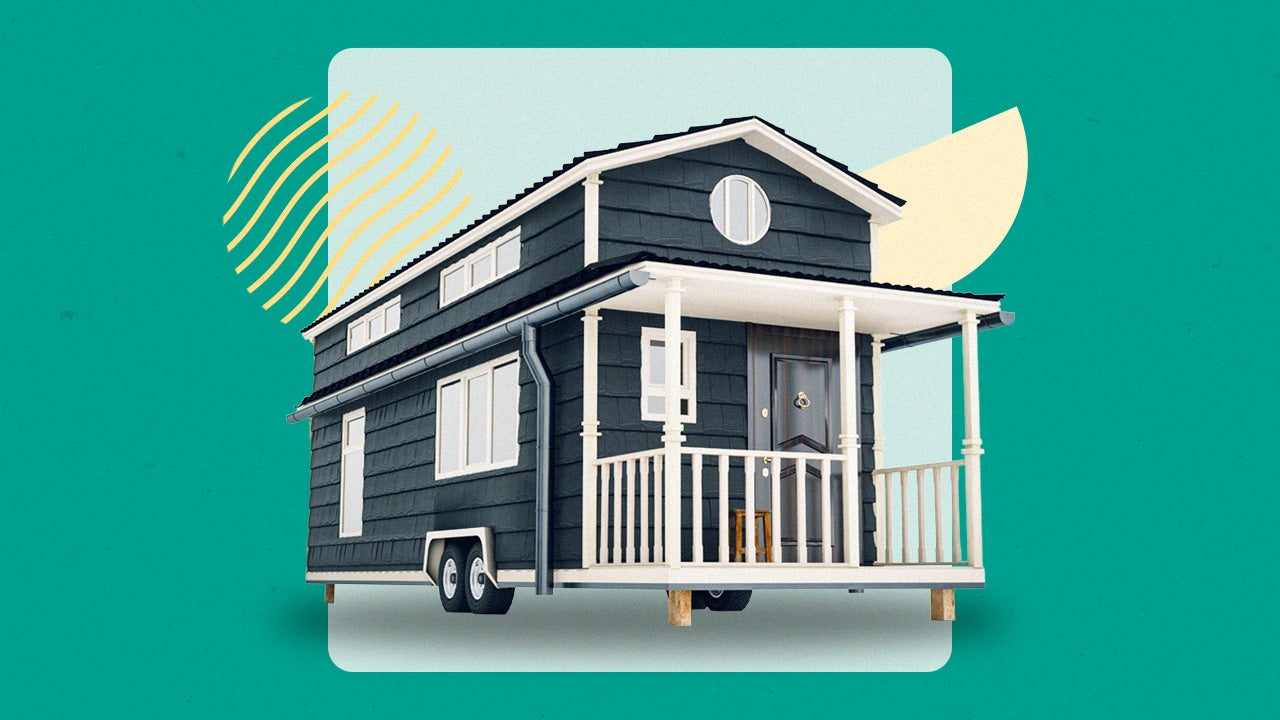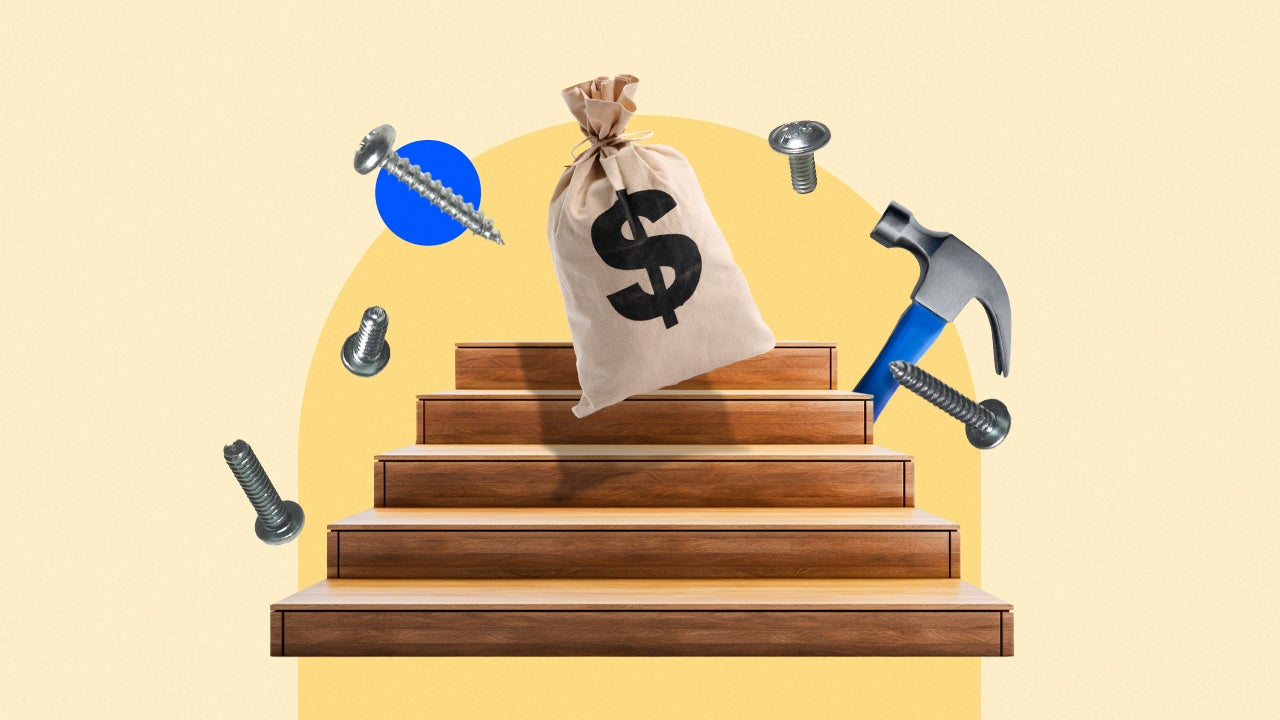‘We buy houses’ companies in North Carolina

Whether you’re in a rush to move or simply aren’t interested in working with a real estate agent, there are multiple reasons why it might make sense to sell your home to a “we buy houses” company. These types of businesses specialize in quick, all-cash deals, which can be particularly useful if you need to sell in a hurry or need the money as soon as possible. However, in exchange for the speed and convenience that these companies offer, you’ll likely receive far less money than you might get in a traditional sale. Many operate on a fix-and-flip model, so they need to make sure they’re able to make money on the resale.
A number of these companies operate in the Tar Heel State, including both national and local firms. Most work in a similar fashion, but there are some key differences. Here’s what to know if you’re thinking about selling your North Carolina home to a “we buy houses” company.
Types of companies that buy houses for cash in North Carolina
You’ll find all sorts of companies that buy houses in North Carolina, ranging from local family-owned businesses to national chains. Here are some of the best-known ones.
National “we buy houses” companies
With a presence in most U.S. states, the aptly named We Buy Houses is one of the biggest players in the industry. It operates in many towns and cities across North Carolina, including Chapel Hill, Charlotte and Winston-Salem. If you’re interested in selling to We Buy Houses, your first step is to reach out and arrange an in-person inspection. After that, you’ll typically receive an all-cash offer from the company within 48 hours. Deals usually close within one or two weeks, with no fees required.
HomeVestors — also known as the “we buy ugly houses” company — is another prominent player in the industry. It serves North Carolina’s biggest markets, including Charlotte, Raleigh-Durham and Greensboro. Similarly to We Buy Houses, you can close on your home deal in as little as three weeks with no fees.
Local cash homebuyers
There are also plenty of local homebuying companies in North Carolina. One is NC Cash Home Buyers, a Cary-based business that buys homes in any condition, provides all-cash offers and commits to closing deals in as little as one week.
Similarly, NC HomeBuyers purchases houses in Raleigh and the surrounding Research Triangle area. After a walk-through, the company will extend a cash offer to buy your home as-is. Like their national counterparts, neither NC Cash Home Buyers nor NC HomeBuyers charge commissions or fees.
iBuyers
iBuyers are all-online businesses that also make fast cash offers on homes. The two biggest, Offerpad and Opendoor, both operate in Charlotte and Raleigh-Durham, two key cities in North Carolina’s housing market. Opendoor also buys properties in the Asheville and Greensboro-Winston areas. However, unlike brick-and-mortar homebuying companies, iBuyers often charge fees, which can be steep — even more expensive than typical real estate agent commissions, in some cases.
How do “we buy houses” companies work?
Whether local or national, most “we buy houses” companies operate similarly. They will typically buy homes in just about any condition, “as-is,” and they often specialize in homes that are in particularly rough shape. Repairs usually aren’t required, which makes this type of sale especially appealing for homeowners who don’t have the time or money to fix up their properties before selling them. And offers extended typically come with no obligation, though there likely is a date by which you must accept or it expires.
If you think selling to a cash buyer might be right for you, here’s what to expect from the process:
- Reach out to the company online or over the phone.
- Speak with a representative about your home and, if required, schedule an in-person visit or inspection.
- After the inspection, you’ll receive a no-obligation cash offer, either immediately or within a couple of days.
- Let the cash buyer know whether you accept or reject the offer. Negotiating usually isn’t permitted.
- If you accept, be sure to read the paperwork very thoroughly before signing anything. Ask questions if there’s anything you don’t understand, and be sure you’re clear on the timeline. Once the contract is signed, you’ll close and get paid within a few weeks, in most cases.
Alternatives
Working with an iBuyer or a “we buy houses” business is relatively quick and painless, but this convenience comes at a cost — literally. These companies are for-profit ventures, and their offers will be lower than what you’d likely be able to get in a traditional sale. If that’s a concern, consider one of these alternatives to cash home buyers in North Carolina.
- Hire an agent: It’s more time-consuming, but working with an agent has plenty of advantages. You’ll benefit from their professional expertise, their deep understanding of the local market and their marketing, pricing and negotiation skills. According to Redfin data, North Carolina homes spent a median of 32 days on the market in May 2023 — and that’s not including the time it takes from contract to closing. A “we buy houses” firm will certainly get the deal done quicker, but the tradeoff is that an agent will almost certainly secure you a better price.
- Sell it yourself: You could also skip both companies and agents and sell the house yourself. This is known as a for sale by owner (FSBO) transaction and, while you won’t have to pay iBuyer fees or a listing agent’s commission, it requires a lot of work on your end. Specifically, you’ll need to manage everything from advertising your property to running open houses to negotiating with buyers. In addition, you probably won’t get as much money for your home. According to the National Association of Realtors, FSBO homes sell for about $100,000 less than agent-assisted properties, on average.
- Leverage your equity: If you’ve been in your home for a while but think you need to sell it to pay off debts or fund a major expense (like college), you may have another option: a home equity loan or home equity line of credit (HELOC). With these products, you can tap into the equity you’ve built in your house in the form of a loan or a revolving line of credit, rather than selling it outright.
- Rent it out: If you’re financially able, keeping the home as a rental property can provide a steady passive income. Keep in mind, though, that getting your house renter-ready and becoming a landlord requires quite a bit of work.
Next steps
Not sure whether selling to a “we buy houses” company is right for you? If you’re in a hurry to offload your home, and speed and convenience are paramount, then working with one of these outfits could be a good choice. You can try getting multiple offers from different companies to see which one gives you the best price. But if you have a bit of time and would prefer to bring in as much money as possible from your sale, think about hiring a local real estate agent. Start by getting recommendations from family and friends, and interview a few different candidates to find someone you feel comfortable with.
FAQs
-
For the most part, yes. However, there are bad apples in every bunch, and you should always vet these businesses thoroughly before working with them. At minimum, take the time to read online reviews and the small-print FAQs on their websites, check with your local Better Business Bureau, and never sign anything without reading it very carefully.
-
In general, companies that buy houses in North Carolina (and the rest of the country) won’t pay as much as you would likely get on the open market. Depending on the location and condition of your house, expect an offer that’s somewhere between 70 to 90 percent of your property’s fair market value.
-
Traditional agent commissions usually come to between 5 and 6 percent of a home’s sale price. However, keep in mind that amount is typically covered by the seller, not the buyer. The majority of “we buy houses” companies don’t charge fees or commissions. However, iBuyers may charge fairly steep fees that are almost on par, or sometimes even more than, what a real estate agent would make.
Why we ask for feedback Your feedback helps us improve our content and services. It takes less than a minute to complete.
Your responses are anonymous and will only be used for improving our website.






